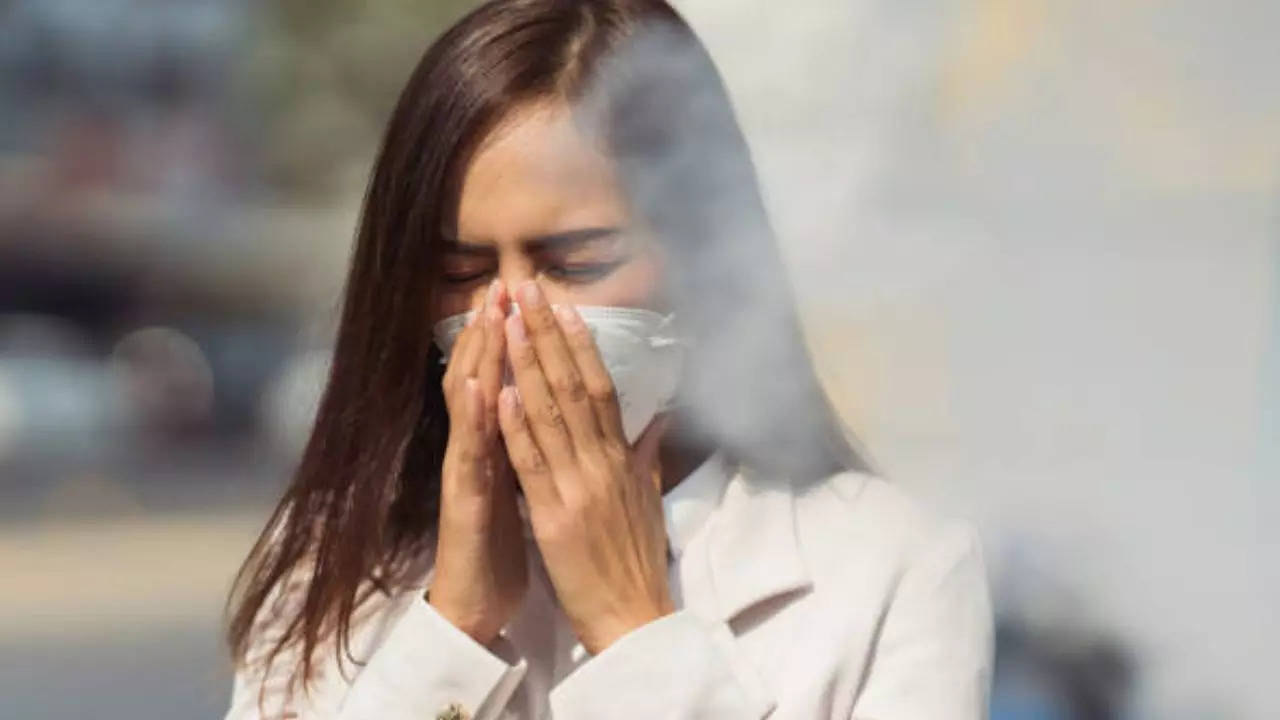Contents
-
news
-
Health
Can breathing poisonous air weaken vision? Experts weigh in on the risks of myopia
Emerging research highlights a link between air pollution and worsening myopia (nearsightedness). Pollutants such as SO2, NO2 and PM can cause oxidative stress and inflammation and interfere with dopamine production in the retina, potentially leading to myopia. Read on to learn tips to protect your vision.

Can breathing poisonous air weaken vision? Experts consider the risks of myopia (Image credit: iStock)
Air pollution in Delhi is not only increasing respiratory problems among residents of Delhi-NCR, but also increasing the risk of chronic eye problems including dry eyes, cataracts, retina damage and even myopia or nearsightedness. Myopia, or nearsightedness, is a common vision condition where nearby objects appear clearly, but distant objects are blurry. It is caused by improper focusing of light into the eye, caused by the shape of the eye or its components. Pollutants such as sulfur dioxide (SO2), nitrogen dioxide (NO2), and particulate matter (PM) have been linked to chronic eye conditions including dry eye syndrome, cataracts, and retinal damage.
We contacted Dr. Ankush Muttreja Ophthalmologist, MS – Ophthalmology, MBBS, Hospital- I4U, who explains that air pollution can also increase the development of myopia. Pollutants can cause oxidative stress and inflammation in the eyes, potentially altering their anatomy and disrupting retinal function. These changes can interfere with the normal regulatory mechanisms responsible for controlling eye development, leading to nearsightedness.
How are people living in metropolitan cities more prone to myopia?
Dr Mutreja explains that people living in highly polluted areas are less likely to spend time outside, depriving their eyes of natural light. Sunlight plays an important role in stimulating dopamine production in the retina, a neurotransmitter that regulates eye development. Insufficient dopamine levels can cause the eyeball to grow abnormally, leading to myopia.
“Poor air quality, coupled with limited outdoor exposure, poses a double burden on eye health, especially in urban populations,” says Dr Mutreja. Oxidative stress from pollutants and lack of natural light contribute significantly to worsening myopia.
Protecting eye health amid pollution
Although improving air quality may seem impossible, Dr. Mutreja suggests some steps you can take to protect your vision:
Improve indoor air quality
– Use an air purifier with a HEPA filter to reduce indoor pollutants such as dust, smoke and particulate matter.
– Keep windows closed on high pollution days to reduce exposure to outside air.
shield your eyes
– Wear sunglasses with UV protection to protect against harmful rays and pollutants. Sunglasses not only protect your eyes from sunlight but also reduce exposure to airborne irritants.
maintain a healthy diet
– Eat a diet rich in antioxidants like vitamins A, C and E. These nutrients fight oxidative stress caused by pollution and support overall eye health.
Prioritize outdoor activities
– Engage in outdoor activities in the morning or when the air quality is better. Exposure to natural light can stimulate dopamine production and aid in healthy eye development.
Get the latest news live on Times Now with breaking news and top headlines from around the world.


